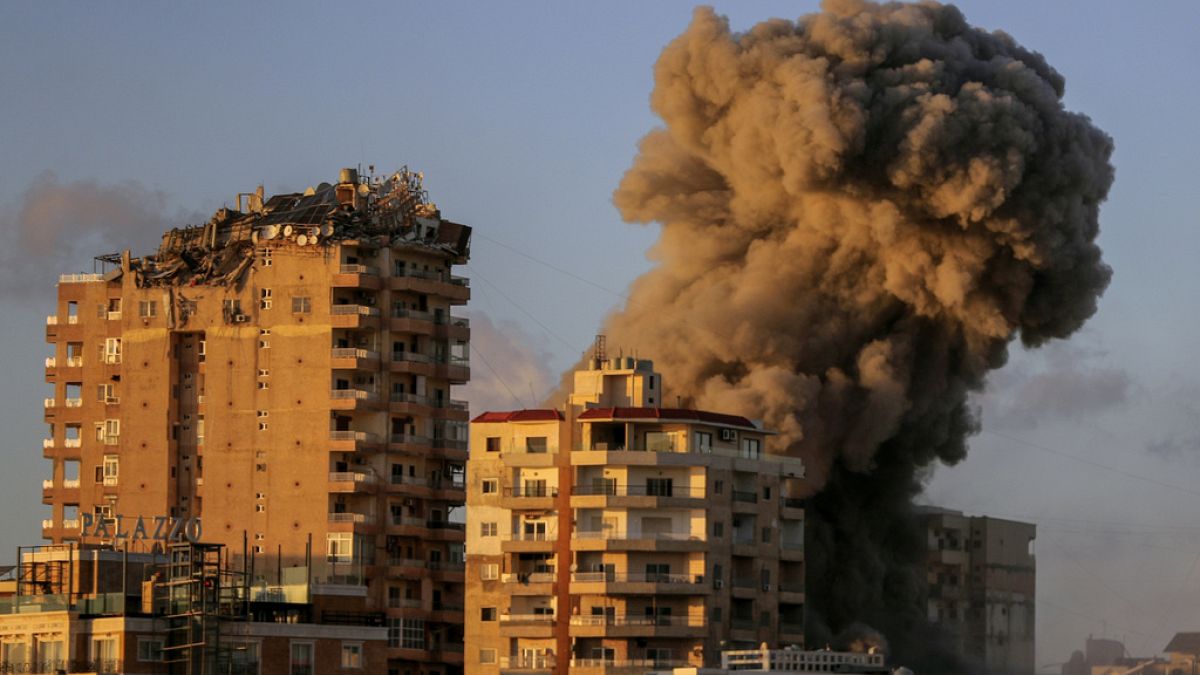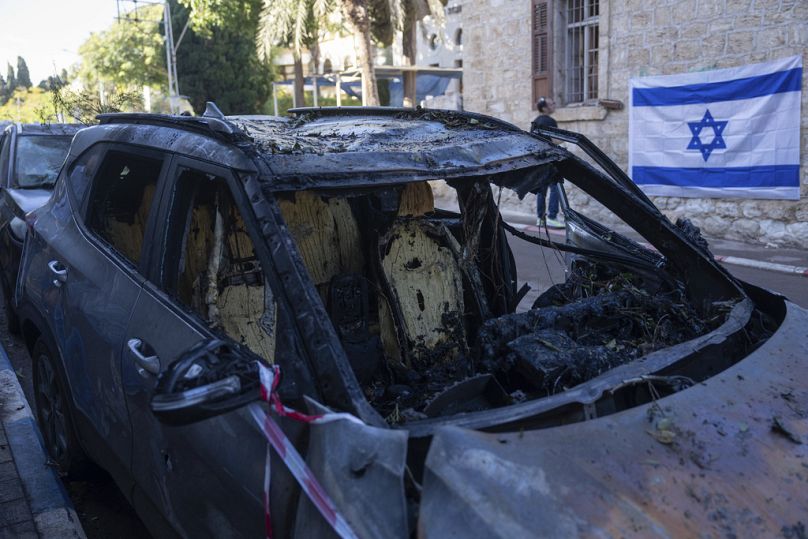
Israeli airstrikes in the Gaza Strip
Strikes killed six people in Nuseirat and another four in Bureij, two built-up refugee camps in central Gaza dating back to the 1948 war surrounding Israel’s creation.
Another two people were killed in a strike on Gaza’s main north-south highway, according to the Al-Aqsa Martyrs Hospital in the central city of Deir al-Balah, which received all 12 bodies.
The Health Ministry in Gaza says around 43,800 Palestinians have been killed in the war. The ministry does not distinguish between civilians and combatants but has said women and children make up more than half the fatalities. Around 90% of Gaza’s population of 2.3 million Palestinians have been displaced, and large areas of the territory have been flattened by Israeli bombardment and ground operations.
The war between Israel and Hamas began after Palestinian militants stormed into Israel on Oct. 7, 2023, killing about 1,200 people — mostly civilians — and abducting 250 others Around 100 hostages are still inside Gaza, about a third of them believed to be dead.
Israeli airstrikes in Lebanon
In Lebanon, Israeli warplanes pounded the southern suburbs of Beirut after the military warned people to evacuate from at least seven buildings. The Hezbollah militant group has a strong presence in the area, known as the Dahiyeh, and the strikes came as Lebanese officials are considering a United States-brokered cease-fire proposal.
The Israeli military posted evacuation warnings on X about an hour before the strikes on southern Beirut, which came early Sunday. Local media reported church bells ringing in and around the area to alert residents. There were no immediate reports of casualties.
The Israeli military also renewed calls on Sunday for residents in over a dozen villages in southern Lebanon to flee as ground troops pushed farther north.
Hezbollah began firing rockets, missiles and drones into Israel the day after Hamas’ 2023 attack, drawing retaliatory airstrikes. The conflict steadily escalated and erupted into all-out war in September. Israeli forces invaded Lebanon on Oct. 1.
More than 3,400 people have been killed in Lebanon, according to the country’s Health Ministry, and over 1.2 million driven from their homes. It is not known how many of the dead are Hezbollah fighters.
On the Israeli side, Hezbollah’s aerial attacks have killed at least 76 people, including 31 soldiers, and caused some 60,000 people to flee from communities in the north.
Israeli prime minister’s residence attacked with flares
Israeli police arrested three suspects after flares were fired at Prime Minister Benjamin Netanyahu’s private residence in the coastal city of Caesarea.
Netanyahu and his family were not at the residence when two flares were fired at it overnight, and there were no injuries, authorities said. A drone launched by Hezbollah struck the residence last month, also when Netanyahu and his family were away.
The police did not provide details about the suspects behind the flares, but officials pointed to domestic political critics of Netanyahu. Israel’s largely ceremonial president, Isaac Herzog, condemned the incident and warned against “an escalation of the violence in the public sphere.”

Netanyahu has faced months of mass protests over his handling of the hostage crisis unleashed by Hamas’ Oct. 7, 2023 attack into Israel, which ignited the ongoing war in Gaza.
Critics blame Netanyahu for the security and intelligence failures that allowed the attack to happen and for not reaching a deal with Hamas to release scores of hostages still held inside Gaza. Israelis rallied again in Tel Aviv on Saturday night to demand a cease-fire deal to return them.
Justice Minister Yariv Levin meanwhile seized on the flare attack to call for a revival of his plans to overhaul the Israeli judiciary, which had sparked months of mass protests before the war.
“The time has come to provide full support for the restoration of the justice system and the law enforcement systems, and to put an end to anarchy, rampage, refusal, and attempts to harm the Prime Minister,” he said in a statement.
Supporters said the judiciary changes aim to strengthen democracy by circumscribing the authority of unelected judges and turning over more powers to elected officials. Opponents see the overhaul as a power grab by Netanyahu, who is on trial for corruption charges, and an assault on a key watchdog.
Opposition Leader Yair Lapid said in a post on X that he “strongly condemns” the firing of flares at Netanyahu’s home while blasting Levin’s proposal.
“Levin should go home with rest of this irresponsible government,” Lapid wrote. “We will not let him turn Israel into an undemocratic state.”





